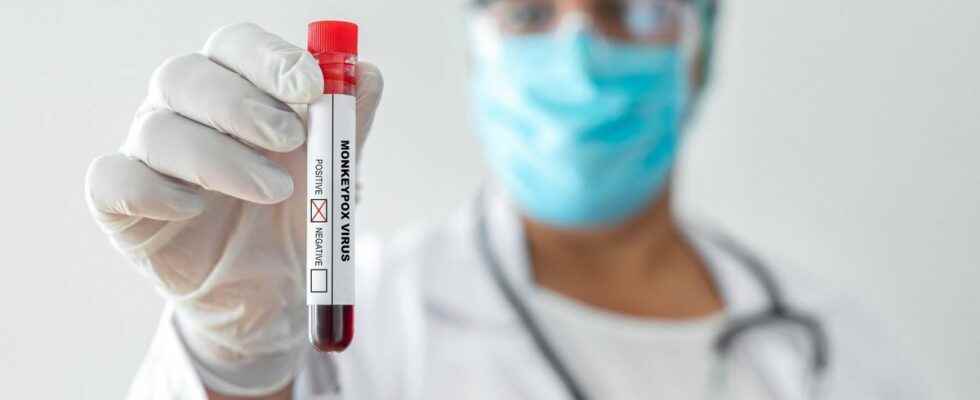Posted ,
Reading 3 mins.
While the WHO plans to meet its emergency committee on June 23 to assess whether monkeypox represents a “public health emergency of international concern”, the European Union announces that it has just signed a contract to obtain more than 100,000 doses of vaccines against the disease.
An “unusual and worrying” outbreak of cases. It is in these terms that Tedros Adhanom Ghebreyesus, the director general of the World Health Organization (WHO), expresses himself to describe the expansion of monkeypox, on June 14, 2022, during a conference Press.
More than 1600 cases in 39 countries
The head of the WHO reports that the organization has identified “more than 1,600 confirmed cases in 39 countries, including 32 where the disease is not endemic”. No deaths are to be deplored in these countries, unlike those where the disease is endemic, such as Nigeria or the Democratic Republic of Congo (DRC).
A reassuring element for Dr Gérald Kierzek, emergency physician and medical director of Doctissimo. “The disease has not yet caused any death in these countries, we must continue to monitor but not to sow panic again. We are in a post-traumatic period after Covid, apply the precautionary principle and let experts and scientists study the evolution of cases”.
Do not use a “mass vaccination”
In addition, WHO on Tuesday released interim guidelines on the use of smallpox vaccines for monkeypox.
“Any decision whether or not to use vaccines should be made based on a risk-benefit assessment, on a case-by-case basis.” thus recommends the organization, ruling out the use of “mass vaccination”. For Tedros Adhanom Ghebreyesus, “it is essential that vaccines are equitably available where they are needed”, adding that the WHO is working with its member states and partners to develop a mechanism for equitable access to vaccines and treatments. “We believe the situation requires a coordinated response due to the spread of the disease globally.”, he also clarified. International experts”will help us better understand the virus.”.
According to Dr. Kierzek, vaccinating populations that may be the target of the disease makes sense.
“Caregivers must be protected, as must vulnerable people who could create a source of contamination and the spread of the disease, but there is no need to vaccinate more”.
An order of more than 100,000 doses
However, the European Commission has chosen to anticipate its needs and announces in a press release dated June 14, 2022, that it has placed a group order for vaccines with the Danish laboratory Bavarian Nordic for 109,090 doses of vaccines against monkeypox, without however reveal the amount.
Dr. Kierzek reminds us that we must be wary of announcement effects: “It is necessary to arbitrate the decisions of health policies on scientific health arguments of effectiveness and not only for the communication. With the shortage of caregivers and the difficulties currently facing the medical world, it is rather inappropriate to spend money unnecessarily”.
A smallpox vaccine
The vaccine, marketed under the name Imvanex in Europe, has been authorized since 2013 and is indicated against smallpox in adults. It is a non-replicating live vaccine, that is to say not replicating in the human body, said to be 3rd generation.
Discussions are underway between the European drug regulator and the laboratory for its application against monkeypox. It should be available at the end of June, for the 27 EU countries but also for Norway and Iceland. Since mid-May, 900 cases of monkeypox have been recorded in 19 countries of the European Union as well as in Norway and Iceland.
Early vaccination to limit the disease
The objective of this vaccine is to limit the disease by making it less serious by early post-exposure vaccination, but also to prevent it, as recommended by the Center for Disease Control and Prevention.
Remember that this disease, which is characterized by the appearance of a high fever followed by a rash of blisters, which eventually dry up and turn into scabs, is most often benign.
